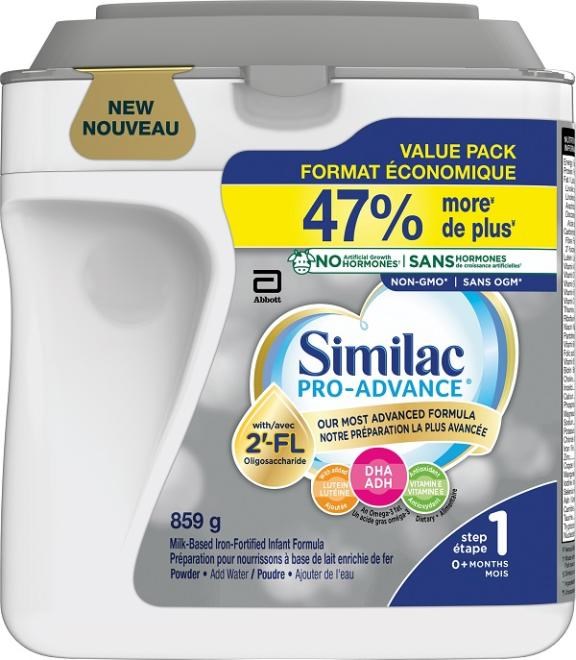OTTAWA — The Canadian Food Inspection Agency has issued a warning to Canadian consumers about a major recall of some powdered infant formula products.
The U.S. manufacturer, Abbott Nutrition, has recalled certain lots of a number of its Similac brand products because of possible contamination by Cronobacter sakazakii and Salmonella bacteria.
Anyone who has any of these products with specific product codes in their home should discard them or return them to the place of purchase.
Affected products have a code beginning with first two digits of 22 through 37 and containing K8, SH or Z2 and have an expiration date of April 1, 2022 or later.
The recall in Canada was triggered by a recall in the U.S. involving products made at its facility in Sturgis, Michigan.
The CFIA says the affected products were sold nationally in Canada.
No illnesses have been disclosed in Canada, but in the US there have been four reported illnesses associated with the consumption of these products.
The CFIA agency offers the following advice:
- If you think you became sick from consuming a recalled product, call your doctor
- Check to see if you have the recalled products in your home or establishment
- Do not consume the recalled products
- Do not serve, use, sell, or distribute the recalled products
- Recalled products should be thrown out or returned to the location where they were purchased
Food contaminated with Cronobacter sakazakii may not look or smell spoiled but can still make you sick. Although Cronobacter sakazakii is not commonly linked to human illness, in rare cases it can cause serious or fatal infections. Cronobacter sakazakii can cause rare bloodstream and central nervous system infections and has been associated with severe intestinal infection (necrotizing enterocolitis) and blood poisoning (sepsis), especially in newborns.
Food contaminated with Salmonella may not look or smell spoiled but can still make you sick. Young children, pregnant women, the elderly and people with weakened immune systems may contract serious and sometimes deadly infections. Healthy people may experience short-term symptoms such as fever, headache, vomiting, nausea, abdominal cramps and diarrhea. Long-term complications may include severe arthritis.
A spokesperson for Abbott Nutrition said “We value the trust parents place in us for high quality and safe nutrition and we’ll do whatever it takes to keep that trust and resolve this situation.”
